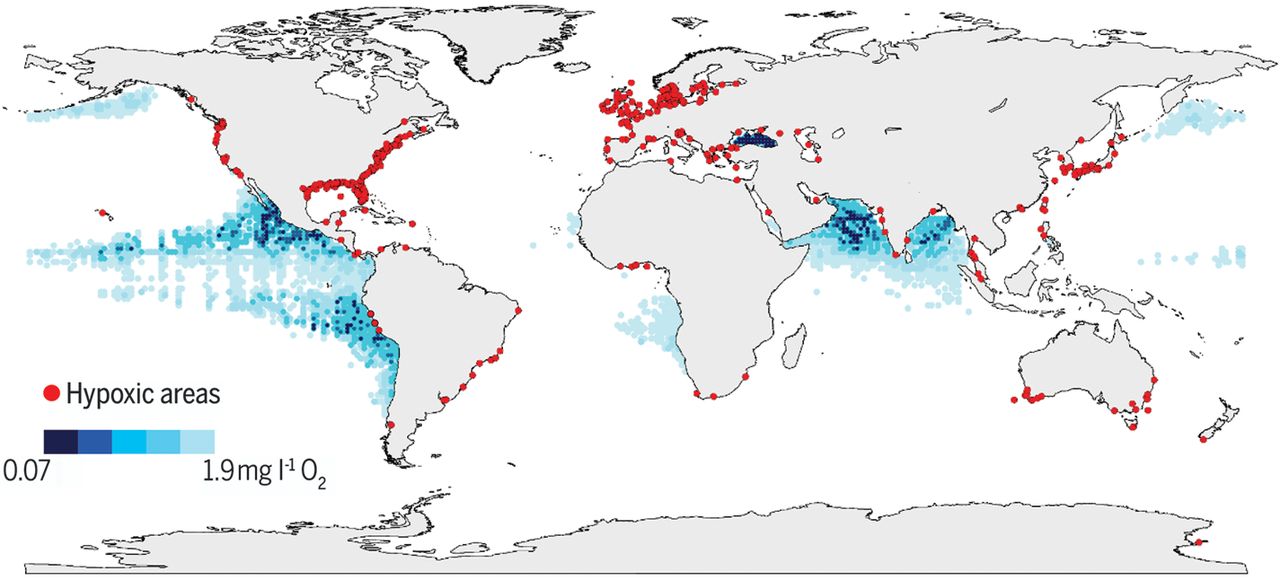
An NCCOS-funded study predicts that hypoxia (low dissolved oxygen) will have more impacts on living marine resources than future ocean warming and acidification, yet ocean research often does not include hypoxia as a key factor driving ocean change.
While it is known that hypoxia impacts animal survival, growth, development, metabolism, and abundance, little is known about the combined effects of hypoxia, warm temperatures, and acidification. Given the potential combined effects, studies with multistressor designs including gradual and extreme changes are further warranted to fully disclose the future impacts of ocean oxygen loss, warming, and acidification. The authors emphasize that understanding how all three stressors will act together under future climate scenarios is needed “to generate more holistic and accurate predictions of biological responses to the oceans of tomorrow.”
The study received part of its funding from an NCCOS project investigating the causes and consequences of hypoxic events in Southern California estuaries.
